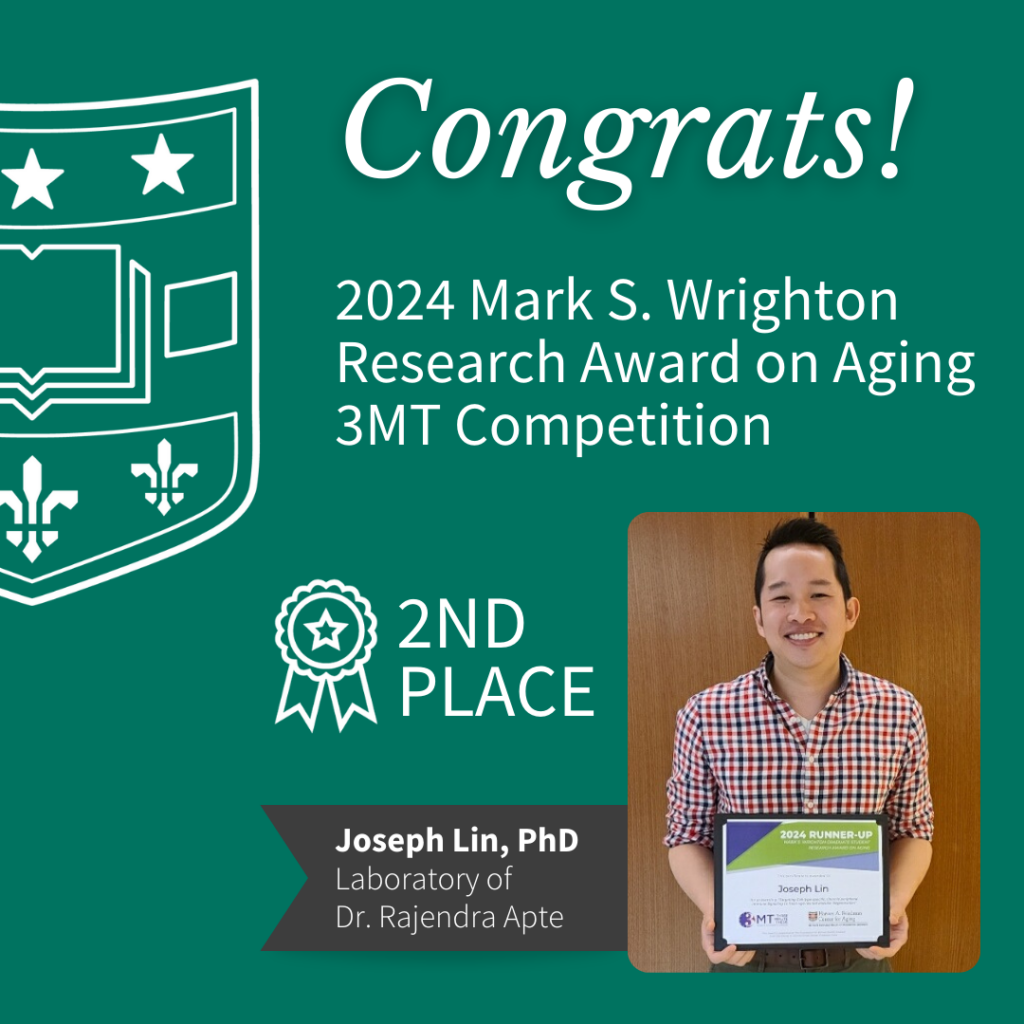Joseph Lin, PhD represented the ApteLab and the John F. Hardesty, MD Department of Ophthalmology and Visual Sciences in the highly competitive 2024 Mark S. Wrighton Research Award on Aging 3MT Competition. This remarkable accomplishment highlights Joseph’s dedication to his research and his exceptional ability to communicate complex concepts efficiently.

The Mark S. Wrighton Research Award on Aging
The Mark S. Wrighton Research Award on Aging is presented at the Friedman Lecture & Awards hosted by the Harvey A. Friedman Center for Aging at the Institute for Public Health. This event addresses topics related to older adults and aging society and presents awards to individuals who have contributed to the field of aging.
This award recognizes doctoral candidates who show outstanding promise as researchers on topics relevant to older adults and aging society. To be considered for the award, students must apply to participate in a Three-Minute Thesis (3MT®) competition, organized by the Harvey A. Friedman Center for Aging. The 3MT is an academic competition that challenges graduate students to describe their research within three minutes to a general audience.
This intense competition tests both the contestants’ communication abilities and the depth of their research comprehension. As 2nd place winner, Joseph Lin demonstrated exceptional expertise and articulation by conveying the significance of his research project.

Research Focus
Joseph’s research, conducted at the Apte Lab and the John F. Hardesty, MD Department of Ophthalmology and Visual Sciences, focused on Novel immune-targeted therapeutics for age-related eye disease. His work aims to address new potential therapeutic targets for age-related macular generation, a leading cause of irreversible vision loss in aging.
While it is known that there are more immune cells in the eye in macular degeneration, it is not known which signals are responsible for their recruitment to the eye. It is also not known whether these immune cells are helpful or harmful in preventing or promoting disease progression. To start to answer these questions, Joseph and the rest of the research team used data generated from human eye and blood samples obtained from patients with macular degeneration. They used these samples to uncover what types of signals the eye could be sending to immune cells. For some of these signals, they studied them further in cell culture and animal models of disease. They found that one of these signals was a protective mechanism, meaning that the eye was sending this particular signal to recruit immune cells to the eye to help prevent further ocular damage and has the potential to uncover new potential druggable targets in macular degeneration. Joseph’s commitment to advancing ophthalmology and visual sciences is truly commendable and inspiring.
We congratulate Joseph and all of the 3MT participants. This competition shows the outstanding talent and innovative research students pursue at Washington University.